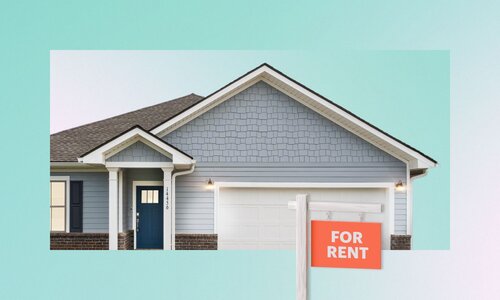The dream of traditional homeownership is becoming increasingly elusive in today’s market – even for those with above-average incomes.
Arrived’s recent Housing Accessibility Report found first-time home buyers are facing difficult — if not impossible — financial challenges, particularly in large urban areas.
In cities like Riverside, Portland, Salt Lake City, Austin, and Washington, DC, it now takes at least 20 more years for individuals with above-average incomes to comfortably afford a home compared to the year 2001. This shift has far-reaching implications for housing markets across the United States.
Rising Home Values and Rents
In 2001, high earners could afford to buy a home in any of the country’s largest metro areas. Today, they can’t.
One of the key contributors to this extended timeline is the staggering increase in home values, particularly in West and Southeastern markets. Over the last 12 years, home values have surged by more than 200% in many markets in the West and Southeast, placing a significant burden on potential homebuyers. This surge has led to a scenario where what a 20-year-old could afford in 2001 now requires them to wait until their 40s to buy in these markets.
Affording a home is not the only challenge. Saving for a down payment has become increasingly difficult. With rents rising faster than incomes, 34% of American households that rent now allocate more than 30% of their income toward housing costs. This dual challenge of affordability and saving put homeownership out of reach for many Americans.
Cities Where Affordability Seems Impossible
In seven of the 50 largest markets, including NYC, LA, Boston, Seattle, San Diego, Denver, and Sacramento, even higher-earning individuals find it challenging to comfortably buy a home at any age.
This marks a notable departure from 2001, when it was possible, even in the most expensive markets, to achieve homeownership comfortably by age 40.
But that isn’t the case nationwide, even in popular urban areas. In some cities like Miami, Nashville, Phoenix, Providence, Las Vegas, and Raleigh, the wait time has increased by 12 years compared to 2001.
And there is hope for homebuyers in the South and Midwest. Cities like Houston, Kansas City, Chicago, Detroit, Cleveland, and New Orleans have seen little to no change in the average age to buy a home over the last 20 years.
The Rise of Fractional Real Estate
Amidst these challenges, fractional real estate enables investors to buy a portion or “fraction” of a property, allowing individuals to participate in nationwide real estate markets with lower capital requirements. Returns may vary based on their ownership stake. This model provides opportunities for diversification and access to real estate assets that might otherwise be financially out of reach for individual investors. It also offers a chance for property value appreciation and potential income through rental yields, creating a more accessible avenue for people to consider the real estate market.
While fractional property ownership differs from traditional homeownership, we see it as a potential step toward understanding property investment. As Arrived clients explore the financial aspects of fractional property ownership; some may consider purchasing their own home and transitioning to traditional ownership.
Our Methodology
Arrived’s methodology systematically studied housing affordability, integrating income percentile selection, data adjustment, and deriving a specific income threshold for homeownership.
- Income Percentile Selection: Utilize the 70th percentile (top 30%) income as the focal point for the study.
- Rationale for Percentile Choice: Justify the selection by highlighting that a significant proportion of homes became unaffordable for the median household income, particularly after removing the effects of inflation.
- Data Adjustment for 2001 SCF: Normalize the 2001 Survey of Consumer Finances (SCF) data by dividing all figures by 1.65 to account for the lack of inflation adjustment.
- Calculation of Income Required for Home Purchase: Utilize the Zillow Home Value Index (ZHVI) and calculate the income required for purchasing a house using the formula: Income Required = ZHVI × 0.28166.
- Derivation of the 28.166% Value: Explain the derivation of the 28.166% value based on the following considerations: Breakdown of a $100,000 30-year mortgage at 7% interest. Calculation of principal and interest (P&I) resulting in $7,983. Consideration of a 20% down payment on a $125,000 home value. Incorporation of 1% property tax ($1,250) and 0.5% insurance ($625). Determination of the yearly mortgage payment with escrow ($9,858), representing 7.886% of the purchase price. Adherence to the guideline that the mortgage should not exceed 28% of pre-tax income, leading to the 28.166% threshold.
- Interpretation of the 28.166% Threshold: Conclude that a household must earn 28.166% of the home’s purchase price annually, pre-tax, to comfortably afford the mortgage payment, based on established financial guidelines.
Arrived offers two avenues to invest in real estate. With the Arrived Single Family Residential Fund, you can invest in a pool of single family residential properties in just a few clicks. Rather build your portfolio? Arrived also offers a selection of single family residential and vacation rental properties in markets nationwide. Browse investments here.
The opinions expressed in this article are for general informational purposes only and are not intended to provide specific advice or recommendations for any individual or on any specific security or investment product. The views reflected in the commentary are subject to change at any time without notice. View Arrived’s disclaimers.
Data used for study: Survey of Consumer Finances, Zillow home data







